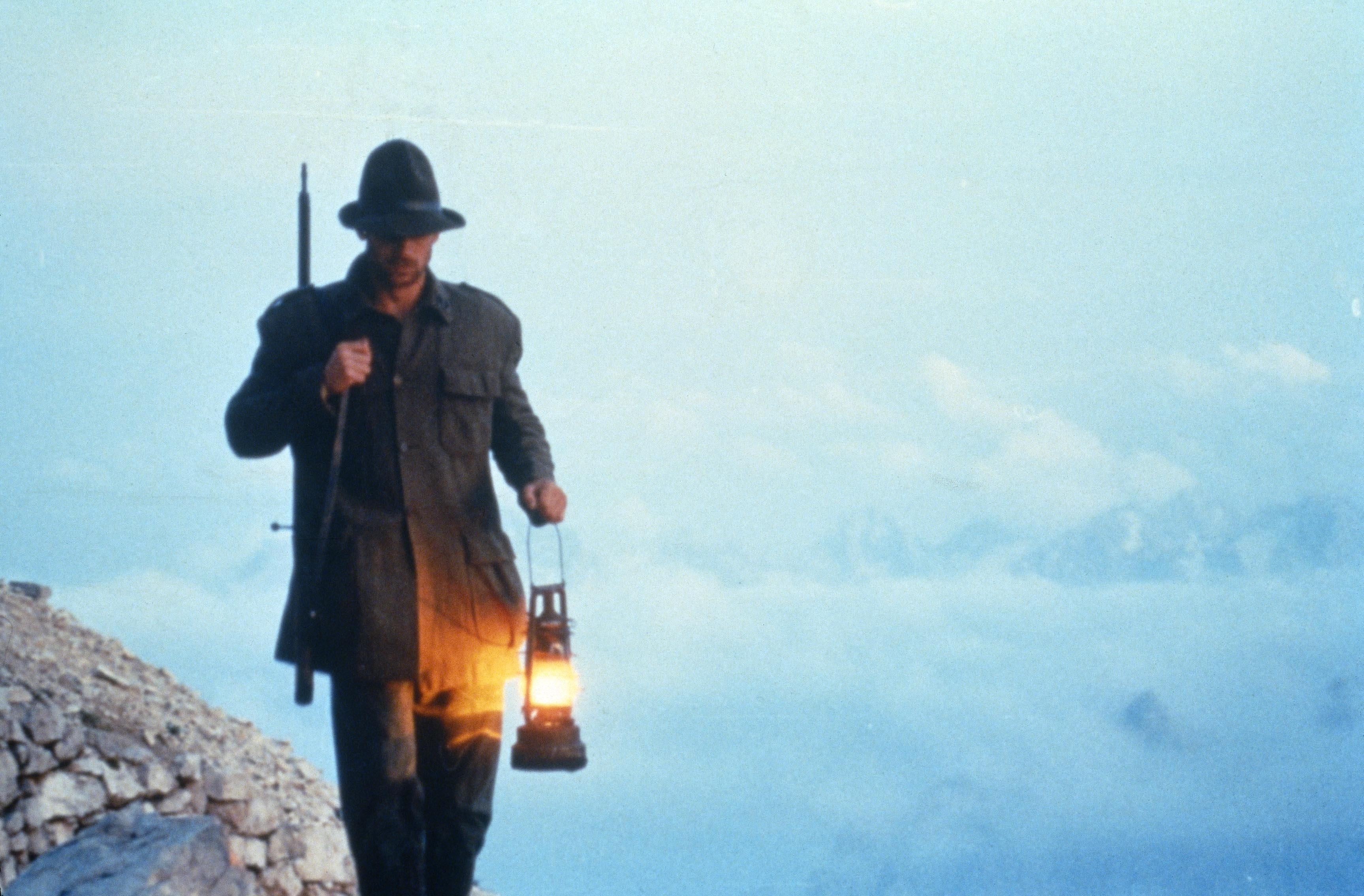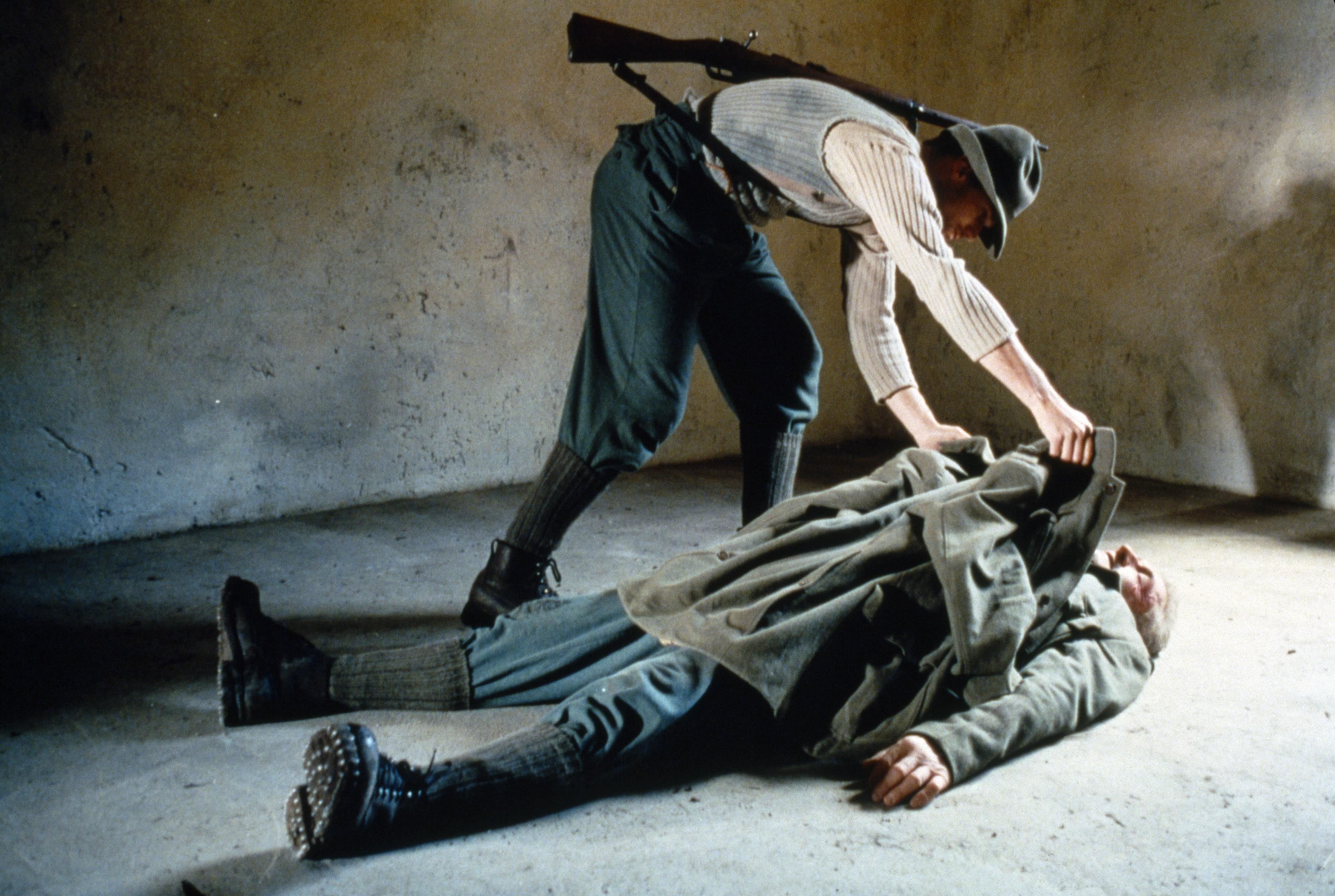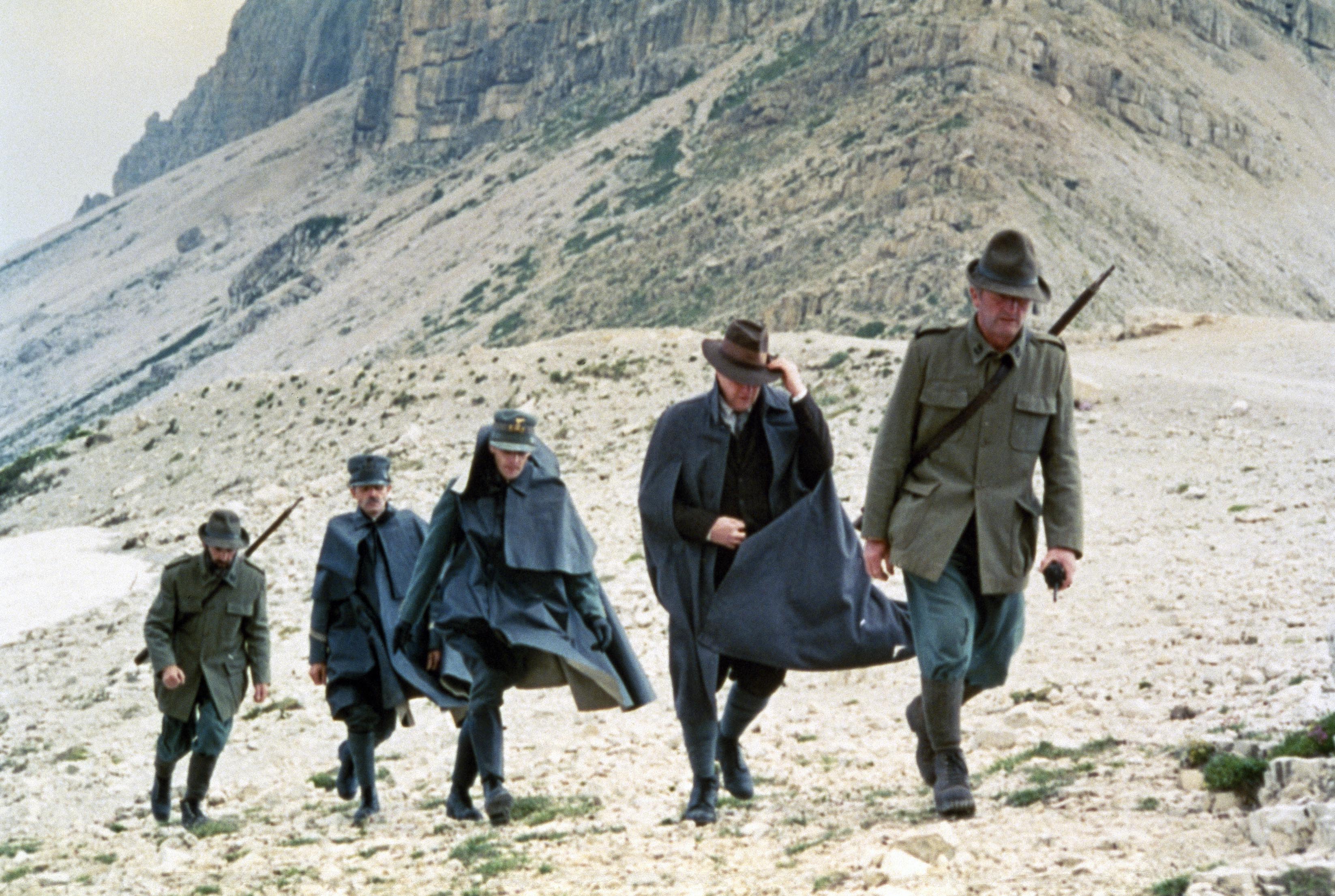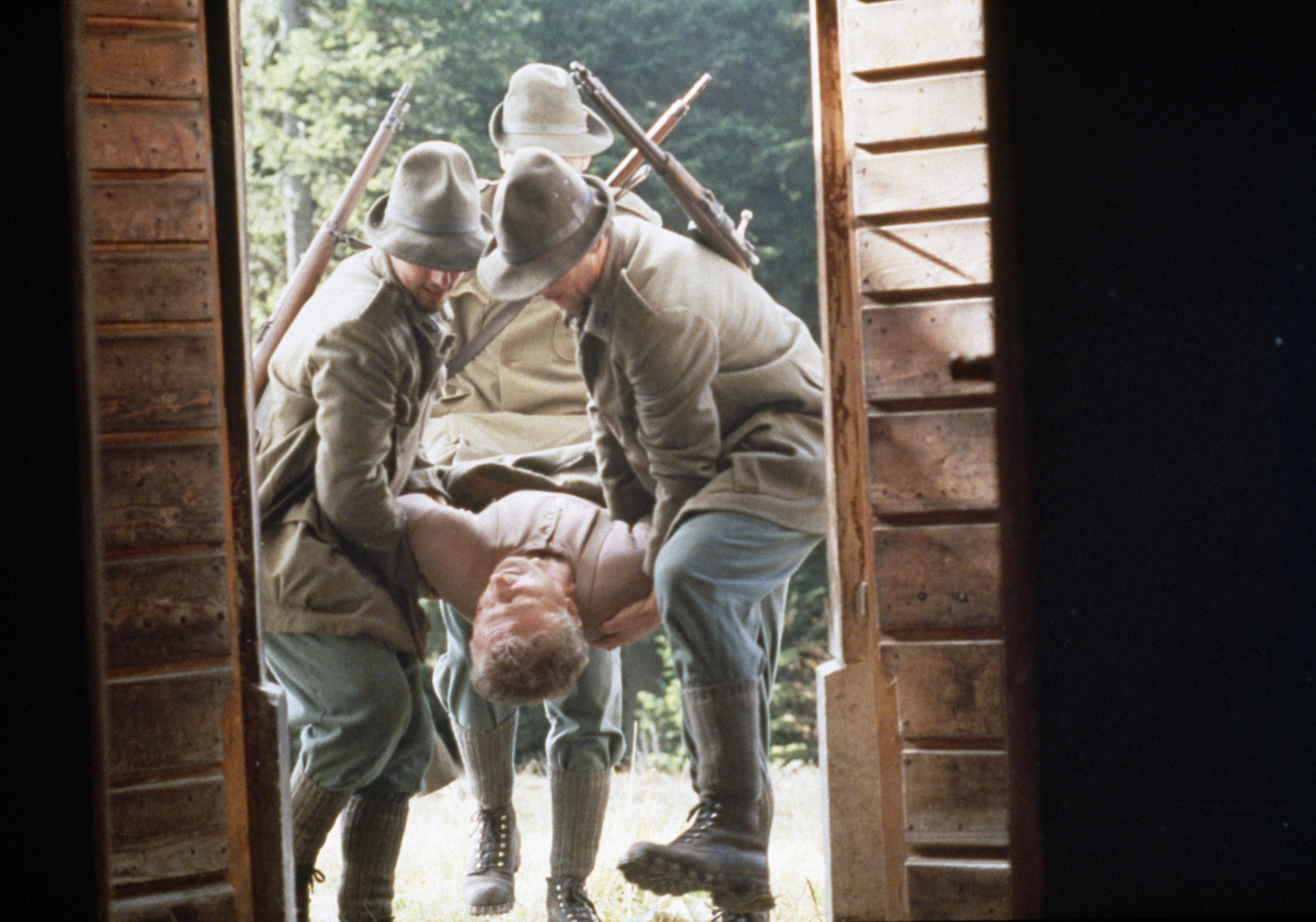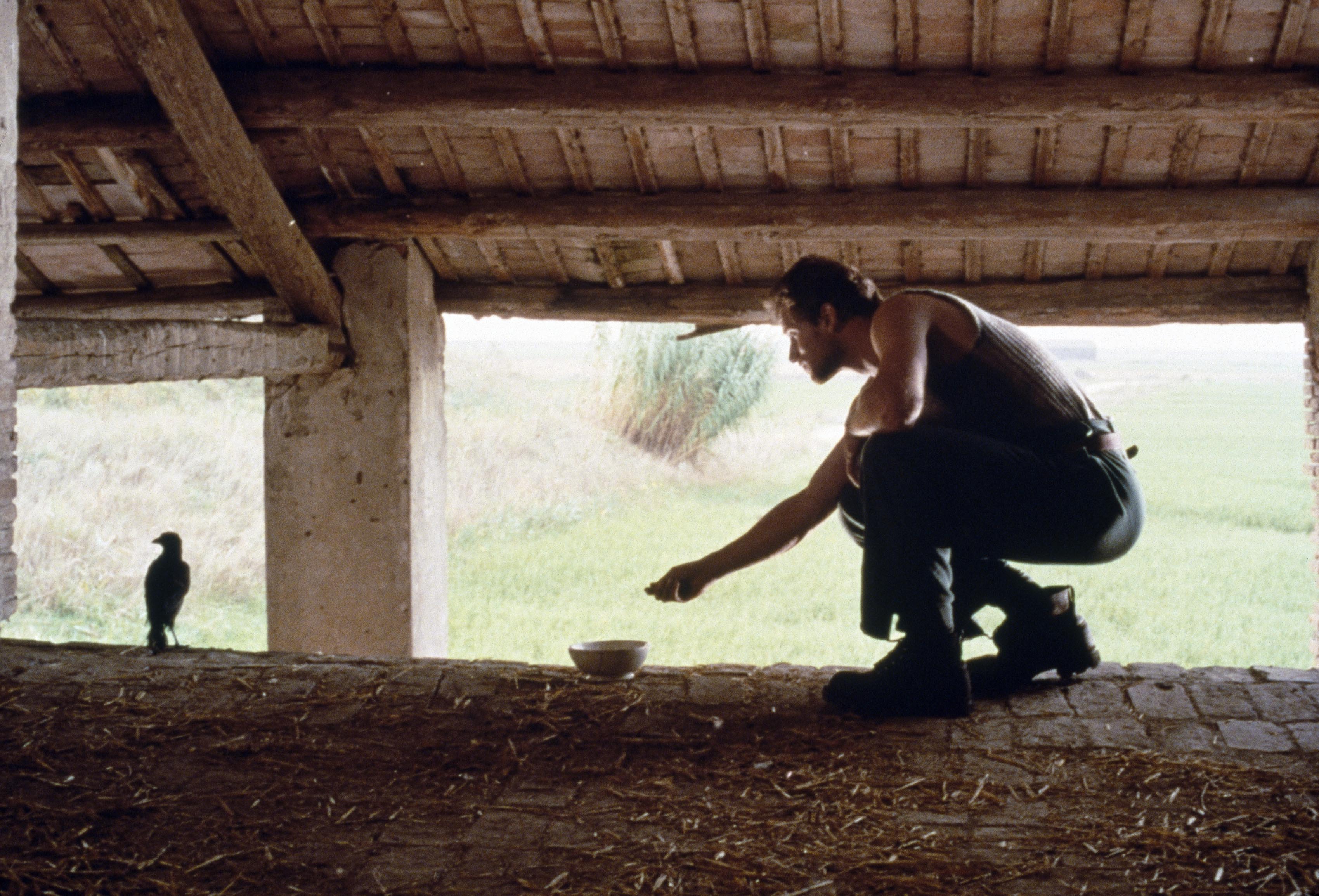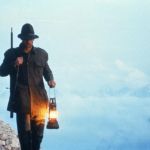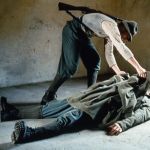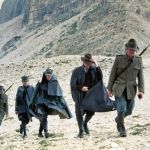The forest rangers spend most of their time standing guard over a powder magazine lost amid the scree at the foot of the mountain faces. Barnabo is barely twenty when enlists in the forest rangers' squad and Del Colle, the old commander, welcomes him like his son. The days pass with nothing to set them apart, weaving a simple and monotonous life. All that remains are the echoes of the war that has just ended and the memory of Darrio, possibly the bravest of the forest rangers, killed by smugglers in mysterious circumstances. One day, Del Colle is also killed. The killers must be found and the commander's murder avenged. Patrols of forest rangers and locals tour the mountains. But they find nothing, no trace of the smugglers. Light returns and spills over the mountains, the first harsh breath of winter appears and, with the first snows, the memory of the old commander seems also to fade away but a light of hope continues to burn in Barnabo's heart. As the search is abandoned, the ideal opportunity arrives unexpectedly. But Barnabo doesn't seize it: faced with the smugglers, he is gripped by fear. He is expelled from the forest rangers, moves down to the valley and becomes a peasant. Through the hard work in the fields, he has plenty of time to consider his mistakes. After many years, he finally returns to the mountains: but he will never be one of the forest rangers again. A great many things have changed: the powder magazine has been abandoned and the smugglers seem to have vanished for good. All that he can do is accept a position as a janitor at the old barracks. But, one day, the smugglers also return and Barnabo is the only one to notice. He climbs high into the mountain and waits for them without being seen. They appear along a narrow cliff trail that threatens to collapse and they are forced to pass through his sights. They move slowly: gasping, ragged and scrawny, with hollow faces. His enemies, the cause of his misfortune, are, like him, marked by time and bear the weight of their torments. He trains his gun on them, ready to kill. He simply has to pull the trigger to atone for his past fault. But he can't seem to fire the gun. The smugglers pass and leave as they came, perhaps for good. High up in the rocks, where Barnabo was hidden, there's no one left now. Nothing has happened; Barnabo hasn't fired.
REVUE DE PRESSE
Note d'intention de Marco Brenta concernant BARNABO DES MONTAGNES-661
"There’s one question that a director would like never to have to answer: why this film?" Sooner or later, however […]
Note d'intention de Marco Brenta concernant BARNABO DES MONTAGNES-661
"There's one question that a director would like never to have to answer: why this film?"
Sooner or later, however - and this seems truly inevitable - the moment occurs and then you struggle to find an answer. You usually attempt to relate the deeper meaning of the film to a presumed and vague universality of values that no one can object to, since it is a matter of putting the conscience to rest, but which has solely a superficial value: for in reality you are unable to go beyond the obvious and the commonplace. Everyone (the person demanding the answer and the person providing it) claims to be satisfied in their own way and congratulate themselves through the others, in a sort of collusive understanding at having thus escaped the danger: thank God, everything has remained untouched! This film, Barnabo delle montagne, should be no exception to the rule.
But what if one side refused to respect this rule? What if the person who is ordered to reply interpreted the question in a totally different manner? "Why cinema and why this film?" for instance.
Why cinema? To extend the game into life itself, to use an illusory reality (that of the film) to create the perception of a reality that isn't illusory (that of life). To exorcise reality, once and for all, through the illusion of the filmmaker's omnipotence, the filmmaker who, in his own way, weaves the lines of the story and pulls the strings of his characters. If the illusion of the film truly works, it convinces the audience that the film is not an illusion.
Why this film? Basically, for the very opposite reason. Not so much to transfer Barnabo's adventure purely and simply to the screen, than to experience it in the first person through a sort of parallelism between telling and making the film, as if it was the same text, written but open. As a result, abandoning the security of convention, of the so-called omnipotence of the filmmaker, to come up against the discovery of the real world of the characters and their context. Exposing yourself to the same risks as the character, Barnabo, by confronting a reality that it is hard to dominate, to perceive the signals and attempt to rearrange them without bringing them back to a different and foreign reality to which they do not belong. In short, risking oneself and, like Barnabo, taking into account also the possibility of failure and the cost of this: accepting the error and also the expiation of the error, if this must be used to understand things better. Agreeing to relate a fable with the codes of reality... even if this may seem nothing more than a perverse game..."
Sooner or later, however - and this seems truly inevitable - the moment occurs and then you struggle to find an answer. You usually attempt to relate the deeper meaning of the film to a presumed and vague universality of values that no one can object to, since it is a matter of putting the conscience to rest, but which has solely a superficial value: for in reality you are unable to go beyond the obvious and the commonplace. Everyone (the person demanding the answer and the person providing it) claims to be satisfied in their own way and congratulate themselves through the others, in a sort of collusive understanding at having thus escaped the danger: thank God, everything has remained untouched! This film, Barnabo delle montagne, should be no exception to the rule.
But what if one side refused to respect this rule? What if the person who is ordered to reply interpreted the question in a totally different manner? "Why cinema and why this film?" for instance.
Why cinema? To extend the game into life itself, to use an illusory reality (that of the film) to create the perception of a reality that isn't illusory (that of life). To exorcise reality, once and for all, through the illusion of the filmmaker's omnipotence, the filmmaker who, in his own way, weaves the lines of the story and pulls the strings of his characters. If the illusion of the film truly works, it convinces the audience that the film is not an illusion.
Why this film? Basically, for the very opposite reason. Not so much to transfer Barnabo's adventure purely and simply to the screen, than to experience it in the first person through a sort of parallelism between telling and making the film, as if it was the same text, written but open. As a result, abandoning the security of convention, of the so-called omnipotence of the filmmaker, to come up against the discovery of the real world of the characters and their context. Exposing yourself to the same risks as the character, Barnabo, by confronting a reality that it is hard to dominate, to perceive the signals and attempt to rearrange them without bringing them back to a different and foreign reality to which they do not belong. In short, risking oneself and, like Barnabo, taking into account also the possibility of failure and the cost of this: accepting the error and also the expiation of the error, if this must be used to understand things better. Agreeing to relate a fable with the codes of reality... even if this may seem nothing more than a perverse game..."




